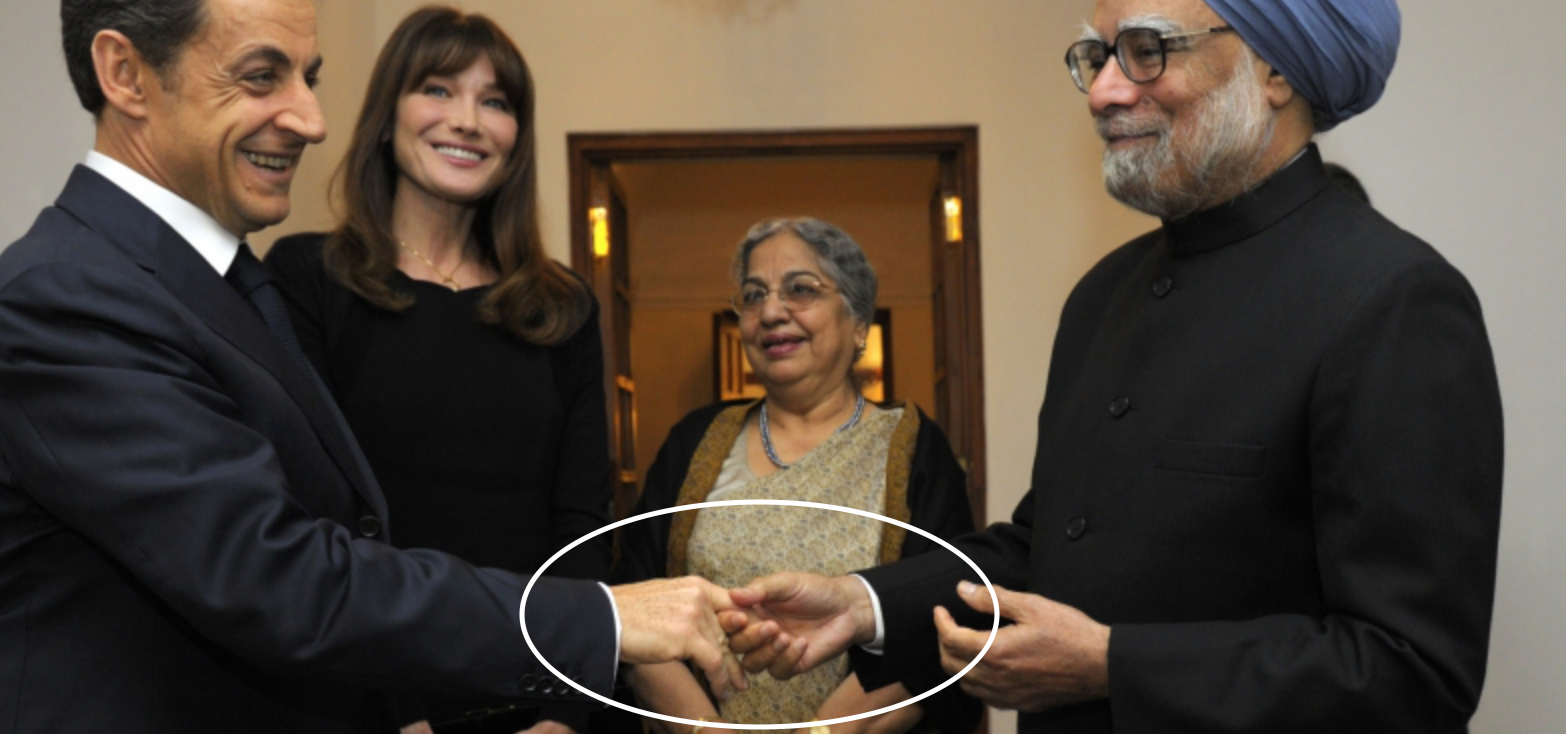English version of Travailler avec les Français: des Indiens témoignent
The mirror effect of cross-cultural relationships
For more than twelve years, I have been collecting numerous stories and remarks of foreigners working with the French. This feedback is very useful: it allows us to go beyond stereotypes and enter into the reality of cooperation and constitutes valuable material for case studies during cross-cultural training sessions.
 Furthermore, the perceptions and experiences of our foreign partners teach us as much about ourselves as about them, as their perceptions, surprises and experiences depend on their own references, habits and values. By sharing stories of their cooperation with the French, they inform us about themselves. This is what we can call the mirror effect of cross-cultural relationships.
Furthermore, the perceptions and experiences of our foreign partners teach us as much about ourselves as about them, as their perceptions, surprises and experiences depend on their own references, habits and values. By sharing stories of their cooperation with the French, they inform us about themselves. This is what we can call the mirror effect of cross-cultural relationships.
From the large database established over the years, I have chosen remarks of Indians working for different companies, mainly French. Why Indians when I could have chosen experience feedbacks from Germans, British or Americans?
Because of a paradox. I have lost count of the number of French people who confide their difficulties in knowing what their Indian colleagues and partners think, who are annoyed by the always positive reactions when they ask them if a message has been understood or who do not manage to get feedback on the progress of a project. For my part, I am generally surprised by the freedom of speech of Indians, the frankness of their questions or their ability to identify and share the blocking factors in communication and cooperation with the French.
I see two types of reasons to explain such a difference in experience. On the one hand, as an external speaker, I have a privileged position of neutrality with respect to the stakeholders, without any hierarchical relationship with them, without any involvement in possible misunderstandings or conflictual relations; on the other hand, I proceed to collect the stories as little abruptly as possible: preparation beforehand to avoid the surprise effect, creation of interpersonal links at the beginning, work in sub-groups of two or three maximum, speaking by a representative of each sub-group to avoid too much individual expression, humility and absence of judgment, etc.
I therefore invite you to read these remarks, keeping in mind that they are singular reactions. The selection has been made on the basis of the frequency and recurrence of the subjects mentioned, indicating that there is not an absolute truth about the French as seen by Indians, but a significant trend that we should be aware of for the Franco-Indian cooperation.
They are classified according to the following categories:
- Professionalism
- Communication
- Meetings
- Emotions and relationship
- Country and society
* * *
1. Professionalism
- The French are very professional and do not call us outside of working hours.
- You can hardly expect a reply to a message outside of working hours. They are very strict about this.
- The French document things very well. They are even experts in documentation!
- They don’t give us all the information or all the context and they ask us to refer to the documentation, but we miss information to understand the meaning and importance.
- They have great expertise in their field. They don’t hesitate to give their time to explain things.
- They are very eager to learn about the problems. They are open to helping.
- They take time, they are not in a hurry.
- The French are disciplined and formal, very much on schedule.
In general, the Indians I met have a good experience of working with the French. Most of them are subject to longer working hours and it is a surprise for them to discover the French legal constraints on this subject.
We can understand that the time pressure is much higher for the Indians than for the French. This relationship to time is often mentioned. Whether it is time for reflection, time for discussion, and consequently time for meetings or time for decisions, this is an important difference. This elasticity of time in the project preparation phase contrasts with the reminder of deadlines and schedules by the French, which can lead to a certain confusion among Indian partners who no longer know how to understand French time management.
Finally, they appreciate the level of expertise of their French colleagues, but they are often surprised by the importance of written documentation, and sometimes annoyed by its heaviness. While the French are pedagogical about the technical issues, they do not make enough effort to explain the context for integrating the documentation they communicate to their Indian partners.

2. Communication
- The French ask a lot of questions, very openly, and they discuss a lot.
- They ask a lot of things, they ask questions all the time.
- Some French colleagues talk a lot and listen little.
- The French are quite direct in their communication.
- I appreciate their frankness but they are very direct.
- They are not very comfortable speaking in English. Some prefer to speak in French even when someone doesn’t understand French in the meeting room.
- They trust the words of another French person rather than us.
- Saying no is a problem for us, we avoid it. Not the French.
- Their tone of voice drops at the end of their sentences.
- I find that there are similarities between the grammar of Hindi and French.
I didn’t quote all the remarks referring to the tendency of the French to ask a lot of questions. This is a surprise for many Indians, who are not used to this question and answer sessions, which are linked to a strong debating culture in France. The result is an embarrassed or silent reaction on their part. This generates new questions from the French to try to put an end to it, which produces the exact opposite effect.
The direct communication style is also very much mentioned. This is certainly a contrast with the less direct communication style of the Indians because, when we ask for example Dutch or Germans, whose communication style is very direct, they find the French rather indirect and ambiguous in their communication!
Concerning the similarities between French and Hindi, I am not qualified on the subject, but you can visit this forum or this website which mention some elements of rapprochement between these two Indo-European languages.

3. Meetings
- The French don’t respect deadlines when it comes to the timing of meetings and they don’t even apologize.
- Each member of the French team shares his or her personal contribution, whereas India, one person speaks for the whole group, and the French only value the person who has just spoken when the others have contributed.
- The size of the working groups is smaller than the Indian groups.
- Why do they say “no, that’s impossible”, right away. What does this refusal mean?
- They correct any mistake without hesitation while we try to understand the meaning without correcting their mistakes so as not to make them feel uncomfortable.
- They cancel videoconferences and they don’t even warn us, and we wait in vain!
- They ask us to do tasks but without much thought. When we do the tasks, we find out that it is useless because they have changed their mind and they don’t need the information anymore.
- Sometimes they don’t remember what they said in the previous meeting!
- If we are careful not to schedule a meeting during their lunch break, sometimes they schedule a meeting during ours.
- They don’t just talk about work, they’re friendly.
This is a critical point. Not all challenges faced by Indians are specific to them. I have heard countless stories from foreigners of all nationalities of similar feedback, including a tendency to point to the glass as half empty, to correct people directly, to exceed the time limit of meetings, and, in general, to be less well prepared for meetings.
Regarding the Indian point of view, it is interesting to note the importance of the collective compared to a more individualistic French approach. A proposal is more often the result of a team on the Indian side and of one person on the French side. If they project their mode of operation onto their Indian partners, the French may not see that a contribution expressed by an Indian is not in fact personal, but expressed on behalf of the group. Criticism of this contribution can thus unintentionally jeopardize cooperation with the entire Indian team.
Finally, the meeting with the French leads to confusion among the Indians. The Indians are surprised by the lack of formality in these meetings, even though they were surprised by the importance that the French attach to the formalism of the documentation. Similarly, the length of the meetings and the excessive duration of the discussions, sometimes on subjects not on the agenda, contrast with the strict respect of work schedules and the insistence on deadlines and project timetables. How should the Indians behave between formal and informal relationships?

4. Emotions and relationships
- The French say what they think but they are polite and cheerful.
- What I like most about my French colleagues is their joie de vivre.
- They are certainly among the most polite people in the world!
- What I like most is that they are friendly and relaxed, and what I like least is that they are not stressed when they should be!
- It’s not easy to read their emotions, we would like to understand better what they are feeling.
- I wish French colleagues would use video calls more often than email or phone. We need to see the faces.
- Personally, I think they are too moody.
- The French get angry quite quickly.
- I’ve noticed that the French don’t tolerate changes in the weather: if it’s a little colder, they immediately say they’re freezing, and if it’s a little hotter they immediately say they’re suffocating.
Politeness as well as cheerfulness are regularly mentioned. This goes against the cliché of the boorish and grumpy Frenchman, a cliché which one may wonder if it is not more carried by the French themselves than by foreigners.
What disturbs the Indians is that the French are less even-tempered. Why is a smiling face at the previous meeting no longer smiling today? They interpret this change as a problem of cooperation with them, whereas perhaps this French contact is less jovial for personal reasons that have absolutely nothing to do with the Indian partners. By contrast, we understand that for the Indians it is important to maintain a certain homogeneity and constancy in the expression of emotions, especially positive ones.
These emotions have a great importance for them. They convey all kinds of messages and indicate the quality of the relationship. They mostly occurred through body language, hence the insistence on faces and video calls. On the French side, some people feel more comfortable communicating in English in written form and prefer email to direct, visual contact, and miss what could be a great help in building interpersonal relationships.

5. Country and society
- The French know how to manage their time when there is a lot of work and they know how to maintain a work life balance.
- Their regular vacations allow for a balance with family life but affect the continuity of work.
- For their vacations, the French go on holidays, we celebrate festivals.
- They like to travel, they are curious, they have a great awareness of their history and culture.
- They like to talk at length about complex subjects.
- France is a rather small country but a very important player in the automotive and defense sectors.
- When they eat, they have an individual plate, they don’t share the food. And they talk a lot during the meal.
- They can divorce and remarry several times!
The issue of work life balance comes up almost systematically. This is something Indians (and many foreigners) admire, and one could say envy, because they are subject to work schedules and hierarchical pressure that make this desired balance an ideal difficult to achieve for most of them.
The use of vacations does not have the same purpose: relaxation and disconnection for the French, festivals (family celebrations, ceremonies, rituals) for the Indians. It is a trend, not an absolute truth: many Indians enjoy their vacations in our way. For example, one of them explained to me that his passion was motorcycling and that he took advantage of his vacations to go on long trips on two wheels and visit his country.
The ritual of meals is not the same. For the French, it is a moment of interpersonal socialization where each person has his or her own plate, or even his or her own dish, whereas for the Indians it is more a moment of collective conviviality and sharing. Another surprise is the fact that the French can divorce and remarry, or even be in a couple several times without being married. It turns out that with less than 1% the divorce rate in India is one of the lowest in the world (see this article).
To complete the picture, I invite you to watch a very interesting video made by a young couple (a French woman and an Indian man) who talk about the cultural shocks they had to overcome in their relationship:
Among the many lessons we can learn from these experiences, I will share a few points that are valid regardless of the nationalities of multicultural teams:
- The collection of feedback and crossed perceptions is complementary to the technical or purely professional dimension of cooperation.
- When there is a “misunderstanding”, it is by definition that something has not been understood or not clearly: in order to better understand each other, let us listen to each other.
- The way of collecting stories and viewpoints must be adjusted to our partners: individually? in sub-groups? via a spokesperson? anonymously?
- It is not enough to listen to others, we must also share our perceptions and experiences, without judgement and by taking the heat out of the discussion, without rushing to what annoys and without neglecting to highlight the positive.
- Listening and collecting remarks is not enough: we still need to understand, hence the importance of tapping into the cultural expertise of our foreign partners so that they can explain to us the meaning of this or that practice or their way of dealing with this or that situation.
- Listening and understanding are still not enough! We now need to adjust ourselves by identifying the few adaptations that are beneficial to both parties (a few very simple examples: agree on the most favorable times and days to plan a meeting, set up an operating mode to bring up questions and misunderstandings in a less personal and less direct manner, identify with your partners the best way to express negative feedback).
- And finally, we should never exchanging views on our mutual contexts because we discover that we are much more similar than different.
Quelques suggestions de lecture:
- Working with the French – feedback from the field
- Working with the French: 17 foreigners from 12 countries share their experiences
- Intercultural meetings: 10 good practices to reduce misunderstandings
- The French and the demon of theory: 3 stories
- Working with the French: 22 foreigners from 19 countries share their experiences
- Cross-cultural Turbulence at Air France-KLM: employees share their experiences



Derniers commentaires